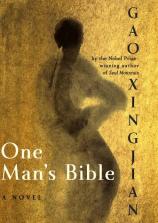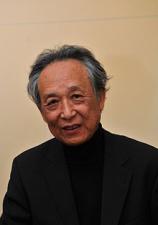Reading Group Guide
Discussion Questions
One Man's Bible

1. The protagonist of One Man's Bible is alternately called "you" and "he." Why might Gao have chosen to split the character in this way? In view of the fact that Gao is writing about himself, why doesn't he simply use the first person?
2. Discuss the relationship between the author's framing and inner narratives, its "present" and "past." In Chapter 10, for example, Gao makes love with Margarethe, while Chapter 11 begins with his memories of making love with the married Lin. Elsewhere Margarethe's relentless questioning is echoed by an interrogation by Red Guards. Where else do you encounter such mirrorings?
3. How does One Man's Bible treat death? How does Gao relate his mother's drowning or the many suicides and political murders that he witnesses? Does this book seem to view death as a tragedy, as a random and relatively inconsequential event, or even as a form of liberation?
4. Margarethe accuses Gao of exploiting her sexually. Do you agree? Is One Man's Bible a sexist book? Do you find its graphic erotic scenes gratuitous? Does sex have a different significance in communist China than it does in capitalist Hong Kong? Do the novel's European and Chinese women experience sex differently? Does Gao ever appear to judge their sexuality?
5. At one point Margarethe and Gao argue over the difference between Maoism and fascism. Does the author's description of Mao's China remind you of accounts you've read of Hitler's Germany or the U.S.S.R. under Stalin? In what way does it seem different? Note, for instance, the relatively low profile of the army and secret police and the way repression seems to emanate not from above but from below, that is to say from students and even, horribly, from children. How has living in such a society affected the novel's characters? Does One Man's Bible contain any similar critique of the capitalist West?
6. One Man's Bible may be seen as a contest between two views of the past. Gao wants to cut himself off from it completely -- a markedly un-Chinese attitude -- while Margarethe, departing from the stereotype of the pragmatic, present-oriented westerner, insists that the past must be remembered, honored, understood. Which view ultimately seems to prevail?
7. Gao describes himself as being like "a free-flying bird. The inner freedom," he says, "had no attachment, was like the clouds, the wind. God had not conferred this freedom upon him, he had paid dearly for it, and only he knew how precious it was." How is this born out by events in the book? How would you sum up the author's view of freedom?
8. In an imaginary conversation with Mao, the author argues that "although it was possible to kill a person, that person's human dignity could not be killed. A person is human because this bit of self-respect is indestructible." What does that dignity consist of? How does Gao manage to preserve his self-respect in a society that not only imprisons its people, but also degrades them? How are the novel's notions of human dignity and freedom related to those set forth in various philosophical traditions -- especially Chinese Taoism and European Existentialism?
9. How does Gao appear to see his role as a writer? Does he believe that art has a social or political function, or that the artist has a responsibility to his society? Do art and literature have a different significance in totalitarian and democratic societies?
10. Do you see the novel's protagonist as its author's alter ego or as a fictional creation who happens to share his name and basic biography? What kind of character is Gao? Does the author ever present him in a less than favorable light?
11. What is the significance of the book's title? What might Gao have intended in calling it a "bible" instead of a novel, memoir or autobiography?
One Man's Bible
- Publication Date: September 3, 2002
- Hardcover: 464 pages
- Publisher: Harper
- ISBN-10: 0066211328
- ISBN-13: 9780066211329








